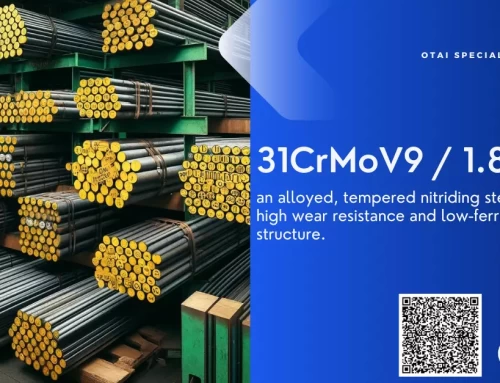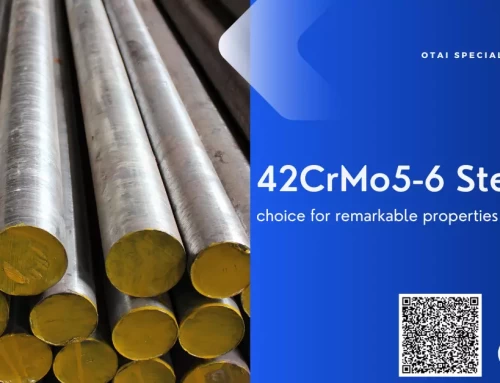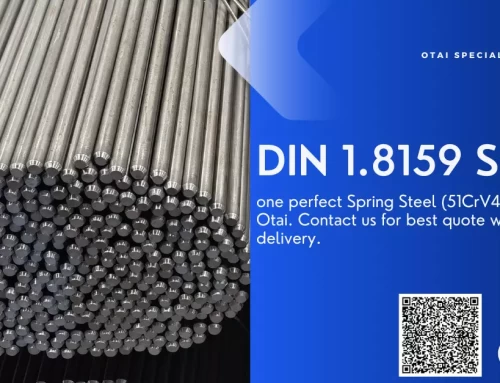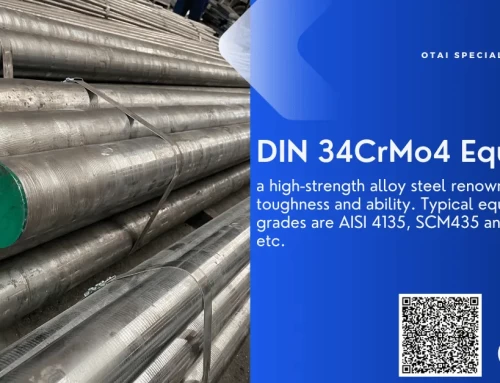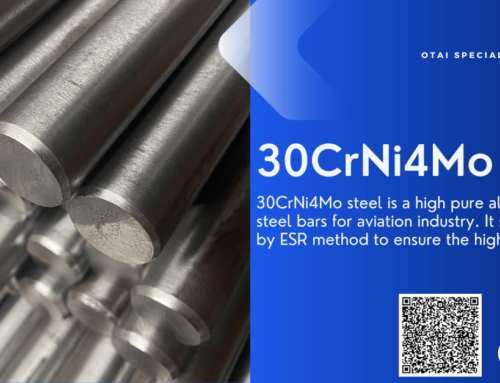What is EN24 Steel Material
EN24 steel, a renowned high-grade alloy steel, stands out in the world of engineering materials due to its exceptional combination of strength, toughness, and wear resistance. It’s widely used in the manufacturing of highly stressed components. EN 24 is a popular material in the automotive, aerospace, and tooling industries. This alloy offers an ideal balance of ductility and hardness. That makes it a good option for applications which requires high tensile strength and resilience.
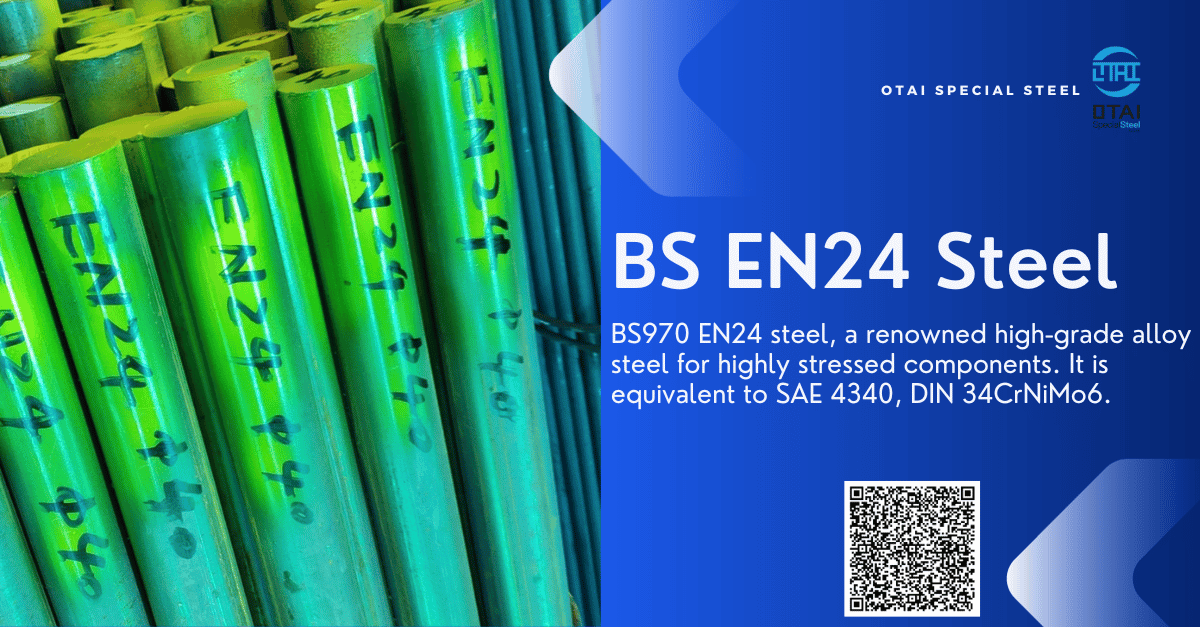
Supply Range of EN-24 Steel
EN24 steel is available in various shapes to meet your different demand or projects:
- EN24 Round Bar: Diameter ranges from 16mm to 600mm
- EN24 Plate: Available in thicknesses from 10mm to 200mm
- Length: standard length 6 meters or random length
- Condition: As rolled, annealed or Q+T hardened condition
- Surface: black surface or machined peeled surface
BS EN 24 Specifications and Equivalent Steel Grades
| Country | Britain | USA | Britain | Japan |
| Standard | BS 970 | ASTM A29 | EN 10250 | JIS G4103 |
| Grades | EN24 / 817M40 | 4340 | 34CrNiMo6 | SNCM 439/SNCM8 |
EN 24 Steel Chemical Composition
| Grade | C | Mn | P | S | Si | Ni | Cr | Mo |
| EN24/817M40 | 0.36-0.44 | 0.45-0.70 | 0.035 | 0.040 | 0.1-0.40 | 1.3-1.7 | 1.00-1.40 | 0.20-0.35 |
| 4340 | 0.38-0.43 | 0.60-0.80 | ≦0.035 | ≦0.04 | 0.15-0.35 | 1.65-2.00 | 0.70-0.90 | 0.20-0.30 |
| 34CrNiMo6/ 1.6582 |
0.30-0.38 | 0.50-0.80 | ≦0.035 | ≦0.035 | ≦0.40 | 1.3-1.7 | 1.3-1.7 | 0.15-0.30 |
EN24 Steel Properties
EN24 steel is characterized by:
- High tensile strength and toughness.
- Good ductility and impact resistance.
- Excellent wear resistance.
- Enhanced strength and durability post-heat treatment.
| Mechanical Properties (subject to ruling section) | |||||
| Condition | Tensile N/mm² |
Yield N/mm² |
Elongation % |
Izod KCV J |
Hardness Brinell |
| T | 850-1000 | 650 | 13 | 35 | 248-302 |
| U | 925-1000 | 755 | 12 | 42 | 269-331 |
| V | 1000-1150 | 850 | 12 | 42 | 293-352 |
| W | 1075-1225 | 940 | 11 | 35 | 311-375 |
| X | 1150-1300 | 1020 | 10 | 28 | 341-401 |
| Y | 1225-1375 | 1095 | 10 | 21 | 363-429 |
| Z | 1550 | 1235 | 5 | 9 | 444 |
Forging of EN24 Steel
Forging EN24 involves heating it to 850°C – 1200°C, ensuring uniformity in temperature before shaping. This process enhances its mechanical properties, and make it more suitable for precision applications. Proper cooling post-forging is crucial to avoid any potential brittleness.
Heat Treatment of EN24 Steel
Heat treatments like annealing, normalizing, quenching, and tempering play a significant role in optimizing EN24’s properties:
Hardening EN24 Steel: heat the EN24 up to a temperature between 823°C and 850°C. Make sure it’s heated right through. After that, it’s time for quenching in oil. This step is important to harden the EN 24 steel properly.
Tempering the Steel: Once you’re done with hardening, the next step is tempering. You’ve got to heat it uniformly, really thoroughly, to your chosen tempering temperature. The maximum you should go for is 660°C. Now, here’s the key part: hold that temperature steady for about two hours for every inch of the steel’s total thickness. Oh, and a heads-up – try to avoid tempering between 250°C and 375°C. Tempering in this range can really weaken the steel’s impact strength.
Stress Relieving: After all that hard work, the steel could use some stress relief. Slowly heat it to a temperature between 650°C and 670°C, and make sure it soaks in all that heat well. Once done, you can cool down the EN24 either in a furnace or just let it cool in the air. This step helps in reducing any stresses that might have built up during the hardening and tempering processes.
Applications of EN24 Steel
EN24’s versatility allows its use in diverse sectors:
- Automotive: Axles, gears, and shafts.
- Aerospace: Highly stressed components.
- Tooling: High strength machine parts.
Cost / Price of EN24 Alloy Steel Material
The price of EN24 steel changes all the time just like other alloy steel and carbon steel. So, check with us the latest price by sending the inquiry list by email or WhatsApp. The best quotation would be sent back to you within 6 hours with all details and terms. Otai will be your best EN24 supplier in China with best price and quality.
FAQs
-
- What is the difference between EN19 and EN24 alloy steel? EN19 is a chromium-molybdenum alloy steel known for its high tensile strength and good ductility. EN24, on the other hand, is a nickel-chromium-molybdenum alloy steel with superior tensile strength and toughness. EN24 is better in highly stressed applications due to its greater resilience and impact resistance.
- What is the main difference between EN24 and EN31 steel? EN31 is a high carbon, high chromium steel primarily used for making tools that require high hardness and wear resistance, such as bearings and cutting tools. EN24, while also hard and durable, is more focused on high tensile strength and toughness.
- What is the main difference between EN24 and EN8 steel? EN8 is a medium strength steel with good tensile strength, commonly used for applications that require strength and ductility. EN24, a high-grade alloy steel, surpasses EN8 in terms of tensile strength and toughness, and that makes it more appropriate for highly stressed applications and components requiring higher resistance to wear and tear.
- What is the main difference between EN 24 and EN24T steel? EN24 and EN24T are essentially the same base alloy, but EN24T is heat treated EN24 steel material with better mechanical properties.
- What’s the difference between EN-24 and 817M40 steel? both of them are BS 970 standard alloy steel. While EN24 is old standard steel material and 817M40 is the latest standard steel grade and number. Generally we could take them almost same.

